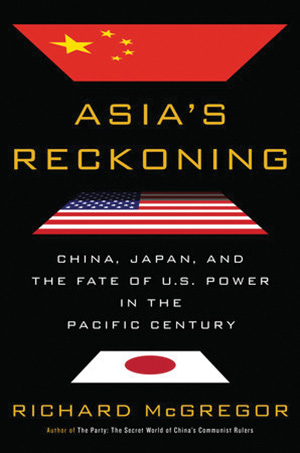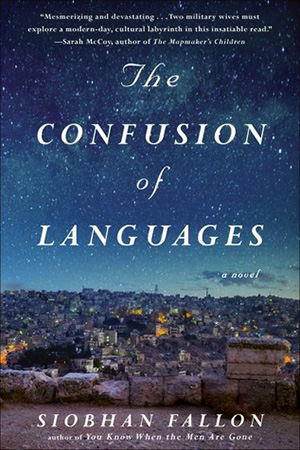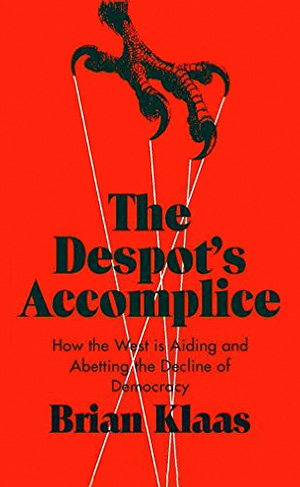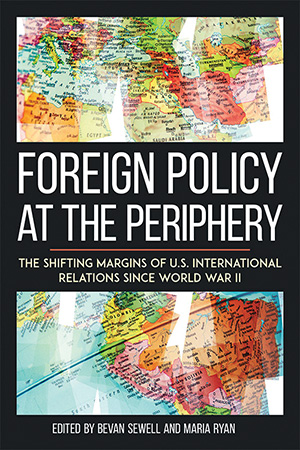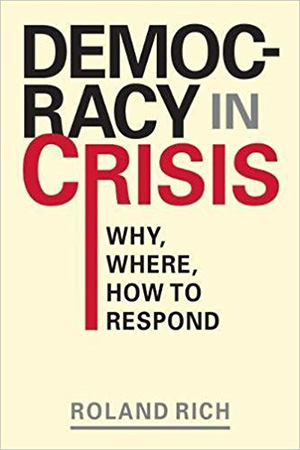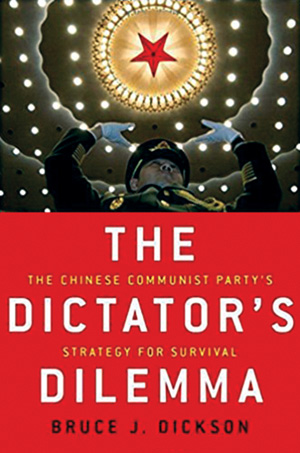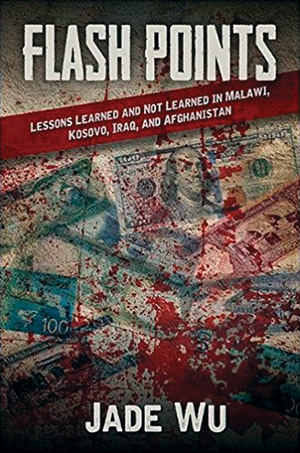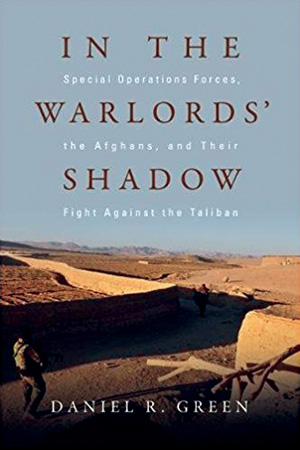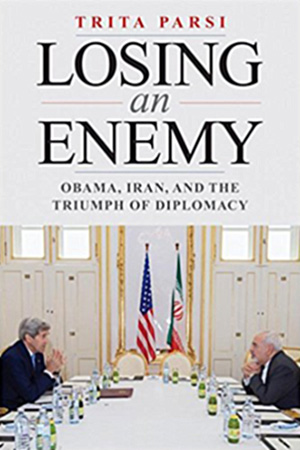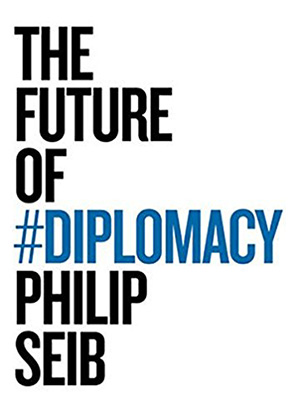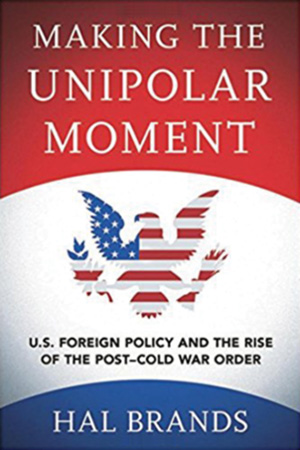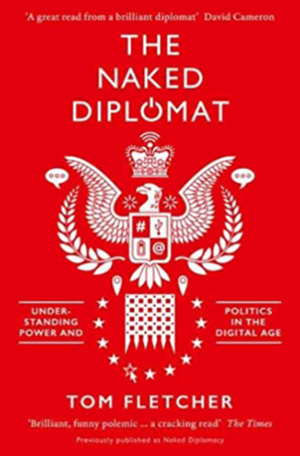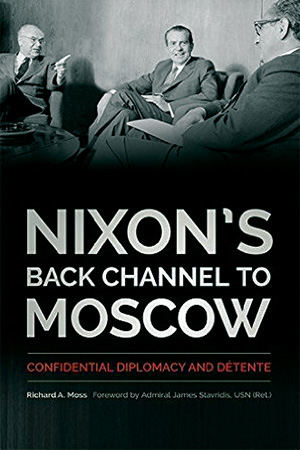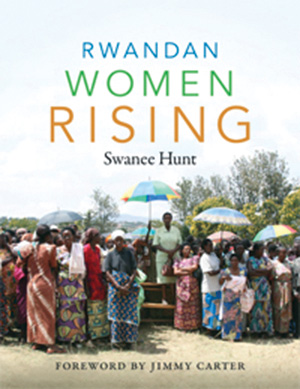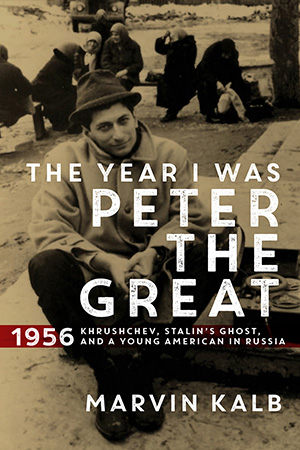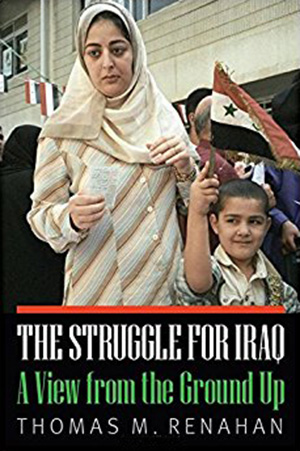Of Related Interest
Here are recent books of interest to the foreign affairs community that were not written by members of the Foreign Service.
American Arabists in the Cold War Middle East, 1946-1975: From Orientalism to Professionalism
Teresa Fava Thomas, Anthem Press, 2016, $115/hardcover, 300 pages.
This book examines the careers of 53 area experts who worked for the U.S. State Department’s Bureau of Near Eastern Affairs during the Cold War. Popularly known as “Arabists” or Middle East hands, they were very different in background, education and policy outlook from their predecessors, the “Orientalists.” A highly competitive selection process and rigorous training shaped them into a small corps of diplomatic professionals with top-notch linguistic and political reporting skills.
Case studies shed light on Washington’s perceptions of Israel and the Arab world, as well as how American leaders came to regard (and often disregard) the advice of their own expert advisers. This study focuses on their transformative role in Middle East diplomacy from the Eisenhower through the Ford administrations.
Teresa Fava Thomas is a professor of history at Fitchburg State University in Massachusetts.
Asia’s Reckoning: China, Japan and the Fate of U.S. Power in the Pacific Century
Richard McGregor, Viking, 2017, $28/hardcover, $14.99/Kindle, 416 pages.
In Asia’s Reckoning, Richard McGregor sounds the alarm about the dangerous geopolitical cracks that are forming in the U.S. security umbrella that has enabled Asia to flourish for more than half a century. In particular, the growing rivalry between China and Japan, fueled by Beijing’s regional ambitions and exacerbated by the Trump administration’s disdain for America’s traditional alliance structures, now threatens to upend the global economy.
Journalist Richard McGregor has reported extensively from East Asia and Washington, D.C., and was a 2015 Woodrow Wilson International Center fellow. His work has appeared in the Financial Times, International Herald Tribune and Foreign Policy. His 2010 book, The Party, was named the Asia Society’s book of the year and the Asian book of the year by Japan’s Mainichi Shimbun newspaper.
Beyond NATO: A New Security Architecture for Eastern Europe
Michael E. O’Hanlon, Brookings Institution Press, 2017, $14.99/paperback, $9.59/Kindle, 160 pages.
In this new book, part of the Brookings Institution’s Marshall Papers Series, Michael O’Hanlon argues that now is the time for Western nations to negotiate a new security architecture for neutral countries in Eastern Europe, both to stabilize the region and reduce the risks of war with Russia. He believes NATO expansion has gone far enough.
The core concept of this new security architecture would be one of permanent neutrality. The countries in question arc from the continent’s far north to its south: Finland and Sweden; Ukraine, Moldova and Belarus; Georgia, Armenia and Azerbaijan; and Cyprus, plus Serbia.
O’Hanlon recommends that consideration of the new framework begin within NATO, followed by discussions with the neutral countries themselves before formal negotiations with Moscow.
Michael O’Hanlon is a senior fellow and research director for the Brookings Institution.
The Confusion of Languages
Siobhan Fallon, G.P. Putnam’s Sons, 2017, $26/hardcover, $12.99/Kindle, 336 pages.
Siobhan Fallon’s debut novel takes place in Amman, Jordan, against the backdrop of the newly developing Arab Spring. The story examines the strange friendship that develops between Cassie and Margaret, both spouses of military officers at the embassy. If you’ve been posted to Amman, you’ll feel a homesick twinge as you read her descriptions of the sites you once wandered. But even if you’ve never been there, you’ll recognize that strange landscape that is life lived overseas: the confusion, shame and sadness that sometimes envelope you as you try to navigate the shores of foreign cultures and strangers-turned-friends.
Fallon’s first book, a collection of short stories titled You Know When the Men Are Gone (G. P. Putnam’s Sons, 2012), won the PEN Center USA Literary Award in Fiction, the Indies Choice Honor Award and the Texas Institute of Letters Award for First Fiction.
The Despot’s Accomplice: How the West Is Aiding and Abetting the Decline of Democracy
Brian Klaas, Oxford University Press, 2017, $27.95/hardcover, 256 pages.
For the first time since the end of the Cold War, the world is steadily becoming less democratic. Although the true culprits are dictators and phony democrats, Klaas argues that the West is also an accomplice, inadvertently assaulting pro-democracy forces abroad as governments in Washington, London and Brussels chase pyrrhic short-term economic and political victories—ultimately making the world less prosperous, stable and democratic.
The Despot’s Accomplice draws on years of extensive interviews on the front lines of the global struggle for democracy with a wide range of interlocutors. Cumulatively, their stories weave together a tale of a broken system.
Brian Klaas is a fellow in comparative politics at the London School of Economics, where he focuses on democratization and political violence. He has advised several national governments and major international nongovernmental organizations, including the International Crisis Group, the Carter Center and One Earth Future.
Foreign Policy at the Periphery: The Shifting Margins of U.S. International Relations since World War II
Bevan Sewell and Maria Ryan, editors, University Press of Kentucky, 2016, $55/hardcover, $34.49/Kindle, 386 pages.
As American interests assumed global proportions after 1945, policymakers faced the challenge of prioritizing various regions and determining the extent to which the United States was prepared to defend and support them. Featuring original essays by leading scholars, Foreign Policy at the Periphery examines relationships among new nations and the United States from the end of World War II through the global war on terror.
Bevan Sewell, an assistant professor in American history at the University of Nottingham, is the author of The U.S. and Latin America (I.B. Taurus, 2016). Maria Ryan is an assistant professor in American history at the University of Nottingham. She is the author of Neoconservatism and the New American Century (Palgrave Macmillan, 2010).
Democracy in Crisis: Why, Where, How to Respond
Roland Rich, Lynne Reinner Publishers, 2017, $32.50/hardcover, 231 pages.
Democracies around the world are beleaguered with threats from multiple sources. Where did these challenges to democratic governance come from, and how can they best be overcome?
Grappling with these questions, Roland Rich interprets the danger signs that abound, not just in the developing world but in the United States and Europe, and offers innovative strategies for turning the tide.
Roland Rich is on the faculty of the Department of Political Science at Rutgers University. He previously served as executive head of the United Nations Democracy Fund (2007-2014), director of the Center for Democratic Institutions at the Australian National University (1998-2005) and a member of the Australian Foreign Service. He is the author of Pacific Asia in Quest of Democracy (Lynne Rienner Publishers, 2007).
The Dictator’s Dilemma: The Chinese Communist Party’s Strategy for Survival
Bruce J. Dickson, Oxford University Press, 2016, $27.95/hardcover, $9.99/Kindle, 368 pages.
Many predicted the Chinese Communist Party would collapse following the Tiananmen Square crackdown in 1989 and as the Berlin Wall came down. But despite minor setbacks, China has experienced stunning economic growth and relative political stability.
In The Dictator’s Dilemma, China scholar Bruce Dickson offers a comprehensive explanation for the party’s continued ability to maintain high levels of popular support even when its policies often generate resentment. Drawing on public opinion surveys, interviews and published materials, he asserts that the Chinese people today see the regime as increasingly democratic; and even though it does not allow political competition and its leaders are unelected, they prefer that political change occur within the existing structures.
Bruce J. Dickson is a professor of political science and international affairs, chair of the Political Science Department and director of the Sigur Center for Asian Studies at The George Washington University.
Flash Points: Lessons Learned and Not Learned in Malawi, Kosovo, Iraq and Afghanistan
Jade Wu, State University of New York Press, 2017, $24.95/hardcover, $14.72/Kindle, 302 pages.
Both a salient critique of U.S. foreign assistance and a thought-provoking memoir, Flash Points illuminates the cross-cultural challenges that often undermine and betray the best intentions of policymakers comfortably situated in Washington, D.C. Jade Wu recounts her experiences as a U.S. foreign aid worker across the globe, where she found that her colleagues often failed to deal respectfully and effectively with host governments and their citizens. The results were often detrimental to American national interests.
Jade Wu has worked on U.S. foreign assistance projects in Malawi, Kosovo, Germany, Iraq, Afghanistan and the Philippines. Her foreign affairs analyses have appeared in The New York Times, International Herald Tribune, The Hill, Washington Diplomat and Foreign Policy Journal. She currently lives and practices law in the Washington, D.C., area.
In the Warlords’ Shadow: SOF, the Afghans and Their Fight Against the Taliban
Daniel R. Green, Naval Institute Press, 2017, $29.95/hardcover, $16.17/Kindle, 304 pages.
In 2010, U.S. special operations forces (SOF) in Afghanistan began an innovative program to fight the Taliban insurgency using the movement’s structure and strategy against it. The Village Stability Operations/Afghan Local Police initiative embedded U.S. Army Special Forces and U.S. Navy SEAL teams with villagers to fight the Taliban together.
In this first-hand account, Green offers a long-term perspective on how SOF stabilized the southern Afghan province of Uruzgan and its impact on the course of the war in Afghanistan.
Daniel Green is a defense fellow at the Washington Institute for Near East Policy and the author of Fallujah Redux: The Anbar Awakening and the Struggle with Al-Qaeda (Naval Institute Press, 2014) and The Valley’s Edge: A Year with the Pashtuns in the Heartland of the Taliban (Potomac Books, 2011).
Losing an Enemy: Obama, Iran and the Triumph of Diplomacy
Trita Parsi, Yale University Press, 2017, $32.50/hardcover, $16.99/Kindle, 472 pages.
In his October Foreign Service Journal review of this book, former FSJ Editor Steven Alan Honley commented on what a daunting task it is to write about a historic diplomatic agreement, particularly one as complex and polarizing as the 2015 Iran nuclear deal, just two years after its signing.
“This is even truer when one’s subject is the product of six years of intricate negotiations and maneuvering on an array of political chessboards, and remains so controversial that its durability is in serious doubt,” he stated, adding that the author possessed “in spades” the two skill sets required to meet the challenge: substantive expertise and insider knowledge.
Trita Parsi is the founder and current president of the National Iranian-American Council and was an informal adviser to the Obama administration’s negotiating team. Fluent in Farsi, English and Swedish, he has served as an adjunct professor of international relations at the Johns Hopkins University’s School of Advanced International Studies, where he earned his Ph.D., as an adjunct scholar at the Middle East Institute and as a policy fellow at the Woodrow Wilson International Center for Scholars in Washington, D.C.
The Future of #Diplomacy
Philip Seib, Polity Press, 2016, $19.95/paperback, $9.99/Kindle, 144 pages.
A central premise of this crisp book is this: “The future of diplomacy is inextricably tied to the future of media.” As Philip Seib, one of the world’s top experts on media and foreign policy, noted, today’s diplomats are increasingly obliged to respond instantly to the latest crisis fueled by a YouTube video or Facebook post. Among other consequences, that trend has given rise to a more open and reactive approach to global problem-solving.
Reviewing the book in the March Foreign Service Journal, Dennis Jett noted some problems with Seib’s analysis, but praised it as “an interesting and useful read [that] clarifies the differences among digital diplomacy, e-diplomacy and public diplomacy. And he covers a wide range of topics in an extremely well-written book.”
Philip Seib is professor of journalism, public diplomacy and international relations at the University of Southern California.
Making the Unipolar Moment: U.S. Foreign Policy and the Rise of the Post-Cold War Order
Hal Brands, Cornell University Press, 2016, $29.95/hardcover, $14.37/Kindle, 480 pages.
In the late 1970s, the United States often seemed to be a superpower in decline. Battered by crises and setbacks around the globe, its post–World War II international leadership appeared to be draining steadily away. Yet just over a decade later, by the early 1990s, America’s global primacy had been reasserted in dramatic fashion. The United States was now enjoying its “unipolar moment”—an era in which Washington faced no near-term rivals for global power and influence, and one in which the defining feature of international politics was American dominance. How did this remarkable turnaround occur, and what role did U.S. foreign policy play in causing it?
Hal Brands, an associate professor of public policy and history at Duke University, uses recently declassified archival materials to tell this fascinating story.
The Naked Diplomat
Tom Fletcher, William Collins, 2017, $16.99/paperback, $5.99/Kindle, 336 pages.
Who will be in power in the 21st century? Governments? Big business? Internet titans? And how can we influence the future?
This book looks at how the rise of digital technology is changing power at a faster rate than any time in history, fueling political, economic and even existential uncertainty. The author considers how we—as governments, businesses and individuals—can survive and thrive in the 21st century. He examines how we can use technology to create opportunity, improve security, outsmart the extremists and make it easier for citizens to take back control.
Tom Fletcher, a former British ambassador to Lebanon, is visiting professor of international relations at New York University. He advises the Global Business Coalition for Education and the Emirates Diplomatic Academy, and chairs the International Advisory Board of the Creative Industries Federation.
Nixon’s Back Channel to Moscow: Confidential Diplomacy and Détente
Richard A. Moss, University Press of Kentucky, 2017, $45/hardcover, $27.99/Kindle, 418 pages.
This penetrating study documents and analyzes Washington and Moscow’s use of confidential diplomatic channels, from President Richard Nixon’s January 1969 inauguration through what has widely been heralded as the apex of détente, the May 1972 Moscow Summit. Using newly declassified documents, the author argues that while the back channels improved U.S.-Soviet relations in the short term, the Nixon-Kissinger methods left a poor foundation for lasting policy.
Richard A. Moss is an associate research professor at the United States Naval War College’s Center for Naval Warfare Studies. A specialist in U.S.-Russia relations and the Nixon presidential recordings, Moss was a graduate intern in the Office of the Historian at the U.S. Department of State, and later worked there as a contract historian.
Rwandan Women Rising
Swanee Hunt, Duke University Press, 2017, $34.95/hardcover, $24.36/Kindle, 448 pages.
To write this inspirational book, Swanee Hunt interviewed some 70 female activists who overcame the unfathomable brutality of the 1994 Rwandan genocide, and countless subsequent obstacles, to rebuild their society. Hunt, who has worked with female leaders in 60 countries over the past two decades, shows us that these women’s accomplishments offer important lessons for policymakers and activists who are working toward equality, whether elsewhere in Africa or other post-conflict societies.
During her tenure as U.S. ambassador to Austria (1993-1997), Swanee Hunt hosted negotiations and symposia focused on securing peace in the neighboring Balkan states, and now chairs the Washington-based Institute for Inclusive Security. She is the author of three previous books, also published by Duke University Press: Worlds Apart: Bosnian Lessons for Global Security, Half-Life of a Zealot and This Was Not Our War: Bosnian Women Reclaiming the Peace.
The Year I Was Peter the Great: 1956, Khrushchev, Stalin’s Ghost and a Young American in Russia
Marvin Kalb, Brookings Institution Press, 2017, $24.99/hardcover, $14.79/Kindle, 300 pages.
In this, his 15th book, the veteran diplomatic correspondent writes a compelling eyewitness account—a “professional memoir,” as he calls it—of a superpower in upheaval. The year was 1956. Known as “the year of the thaw,” it was the year when Nikita Khrushchev, then the leader of the Soviet Union, denounced his predecessor Joseph Stalin’s despotic leadership.
Fluent in Russian and a doctoral candidate at Harvard, Kalb had the opportunity to observe this tumultuous year while working at the U.S. embassy in Moscow. He listened as Russian students attacked communism and threatened rebellion against the Soviet system, and even met with Khrushchev, who playfully nicknamed him Peter the Great.
Marvin Kalb is currently a nonresident senior fellow with the Foreign Policy program at Brookings and a senior adviser at the Pulitzer Center on Crisis Reporting.
The Struggle for Iraq: A View from the Ground Up
Thomas M. Renahan, Potomac Books, 2017, $36.95/hardcover, $31.09/Kindle, 536 pages.
The Struggle for Iraq is a revealing personal account of Iraq’s fight for democracy and justice, as seen by an American political scientist on the ground. One of the few Americans to serve in all major regions of Iraq, Thomas Renahan led projects to develop democratic institutions, promote democracy and fight corruption throughout the country.
In this book he looks at the obstacles the effort faced, highlighting both achievements and frustrations, and recounts the dangers and hardships the expatriate staff and Iraqis endured as they struggled to build a new country in the midst of violent sectarian conflict. He explains how the United States can help resolve these complex problems and offer hope through reconciliation.
Thomas M. Renahan is a political scientist, public administrator and international development consultant. He is coeditor of the Daesh Daily newsletter.


